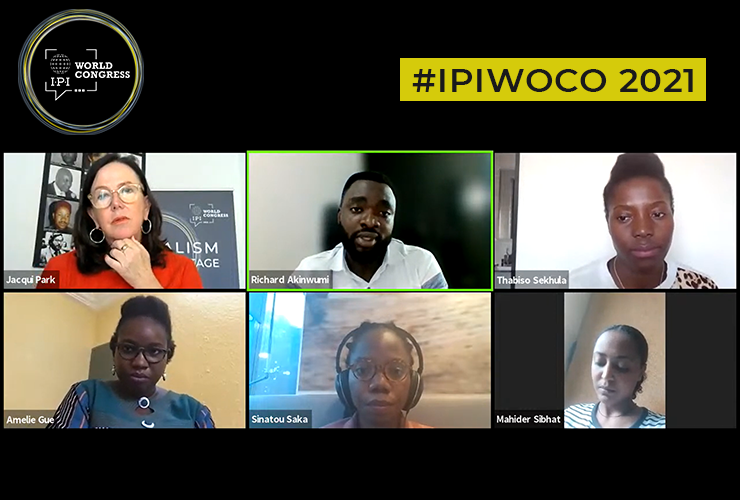A growing number of African news outlets use messaging platforms like Telegram, Facebook or WhatsApp to distribute content and to interact with readers. The platforms help journalists to adapt and improve their journalism according to readers’ needs, African journalists at IPI’s World Congress agreed.
On Wednesday, September 15, the International Press Institute (IPI) kicked off its hybrid World Congress 2021 with an online session with African journalists, editors and media executives on the role of messaging platforms in modern journalism. “Distributing information via messaging platforms works well because someone sends it to you”, The Continent’s Sipho Kings stated. “This makes it attractive to share the information.” The Continent distributes a weekly PDF with readable news via various messaging platforms, such as WhatsApp, Signal and Facebook.
Scrolla’s Thabisa Sekhula emphasised that a phone is the device closest to people. “People will share information in the easiest way for them. When you read something interesting or breaking news, the first place people go to is a messaging app, to share it with their closest circle.” Besides its website, Scrolla shares its content via two data-free messaging platforms to reach audiences with limited access to mobile data.
By using messaging platforms, news outlets can build closer relations with readers, panellists agreed. “Don’t think: you are the expert”, Sekhula emphasized. Instead, listen to the audience and change as you go. There is not some magical solution. It is a lot of practice, error and feedback from the people you’re sharing with.”
Debunking “fake news”
Especially during a pandemic, messaging platforms can be used to tackle misinformation on COVID-19, the speakers agreed. “If someone can encourage you to take ivermectin via these platforms, why can’t we use it to spread reliable information?”, Kings asked.
During the pandemic, Burkina Faso’s AmiNet Project has repeatedly used social media to answer readers’ questions and to debunk misinformation, co-founder Amelie Gue explained. “There is so much fake news on WhatsApp on Covid-19,” Gue stated. “People don’t know what to believe and whatnot. So we thought: why not use the platform to invite experts who could instead explain it to our audience?” The platform hosted a Facebook Live with Burkina’s Faso national coordinator against COVID-19, and launched the Poko Chatbot, which answered reader’s questions about the virus.
High costs
Using messaging platforms as a main distributor also comes with challenges, Scrolla’s Mungo Suggot explained. “In South Africa data costs are expensive. Yet, we want to reach people with low resources and not a fancy phone. ” In order to reach a broad audience, Scrolla cooperates with Moya and Ayoba. “These platforms distribute information without charging readers, making journalism more accessible for people with low resources.”
Another potential pitfall: when content is shared via encrypted social media platforms, like WhatsApp, SIgnal or Telegram, few available analytics are available. “At The Continent, we don’t know how many readers receive our PDF, since WhatsApp does not share this”, Sipho Kings explained. The outlet has around 15.000 subscriptions, but its reach goes beyond this, since readers share the PDF with their friends.
An “interesting challenge”, Kings called it. “In the age of the internet everything is about how many people read your articles.” Despite this, a growing number of investors have started funding the Continent recently, Kings explained. “They want to invest in us, for the sake of journalism.” His message: “Trust yourself, trust in journalism and quality content will win.”
Constant adaptation
Building a community via messaging platforms comes with a tradeoff, session moderator and IPI head of network strategy and innovation 1concluded. “It means choosing between engagement with your readers and having detailed analytics. Maybe this panel shows we should let go of the analytics and believe in the quality of journalism again.”



